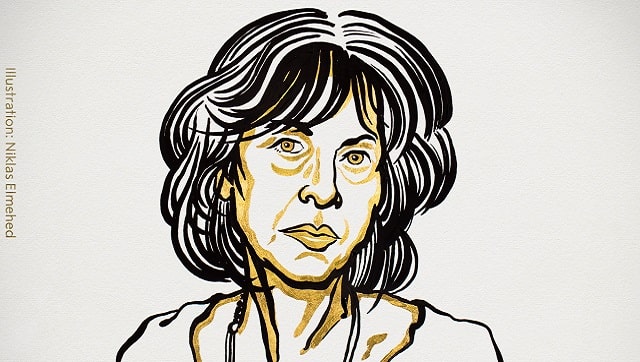When Saul Bellow won the Nobel Prize in literature in 1976, he commented: “The child in me is delighted. The adult in me is skeptical.” Bellow saw a “secret humiliation” in the fact that “some of the very great writers of the century didn’t get it.” Louise Glück, who won the prize on 9 October, has long been skeptical of praise as well. In a 2009 interview, she said: “When I’m told I have a large readership, I think, ‘Oh great, I’m going to turn out to be Longfellow’: someone easy to understand, easy to like, the kind of diluted experience available to many. And I don’t want to be Longfellow. Sorry, Henry, but I don’t. To the degree that I apprehend acclaim, I think, ‘Ah, it’s a flaw in the work.’” Glück — her surname rhymes with “click,” not “cluck” — is not the new Longfellow. Yet it’s part of her greatness that her poems are relatively easy of access while impossible to utterly get to the bottom of. They have echoing meanings; you can tangle with them for a very long time. I have argued, in these pages, that her 1990 book, Ararat, is the most brutal and sorrow-filled book of poetry published in the last 30 years. (It’s contained in her collection Poems: 1962-2012.) It’s confessional and a bit wild, I wrote, comparing it to Bob Dylan’s ‘Blood on the Tracks.’ One of the things to love about Glück’s poetry is that, while her work contains many emotional registers, she is not afraid to be cruel — she confronts the monsters in herself, and in others, not with resignation and therapeutic digression but with artery-nicking knives. The poet Kay Ryan, in her terrific new book of essays, Synthesizing Gravity, writes: “I think it’s good to admit what a wolfish thing art is; I trust writers who know they aren’t nice.” Glück’s work is replete with not-niceness. You would not, you sense, want her as an enemy. As I write this, I have my copy of Poems: 1962-2012 splayed out beside me on my writing table. It’s pretty well marked up. You can flip it open almost anywhere and find flying shards of dark intellect and beasty wit. “You should take one of those chemicals,/maybe you’d write more” is a characteristic put-down. So is: “Your back is my favorite part of you,/the part furthest away from your mouth.” So is: “I expected better of two creatures/who were given minds.” Perhaps explaining such lines, she has also written: “You show respect by fighting./To let up insults the opponent.” Glück’s free verse is exacting and taut and rhetorically organized. Thematically, the mirepoix is composed of family, childhood, love, sex, death, nature, animals. Her classical allusions are deft. She is a serious poet of the appetites. Even when she ostensibly writes about food, she is writing about 11 other things at the same moment. A poem called ‘Baskets’ includes these lines: I take my basket to the brazen market, to the gathering place, I ask you, how much beauty can a person bear? It is heavier than ugliness, even the burden of emptiness is nothing beside it. Crates of eggs, papaya, sacks of yellow lemons — I am not a strong woman. It isn’t easy to want so much, to walk with such a heavy basket, either bent reed, or willow. Glück was born in New York City in 1943, and grew up on Long Island. Her father helped invent the X-Acto knife. That’s a cosmically sublime detail; no other poet slices with such accuracy and deadly intent. She attended Sarah Lawrence College and Columbia University, but took no degree. She was United States poet laureate in 2003 and 2004. She has won most of this country’s major poetry prizes. When Glück was young, she suffered from anorexia nervosa. She doesn’t address this subject often, or directly, in her work. But here is a section of her poem ‘Dedication to Hunger’: It begins quietly in certain female children: the fear of death, taking as its form dedication to hunger, because a woman’s body is a grave; it will accept anything. She has become a profound and witty poet about growing old. In ‘Averno’, she writes about the speaker’s children: I know what they say when I’m out of the room. Should I be seeing someone, should I be taking one of the new drugs for depression. I can hear them, in whispers, planning how to divide the cost. And I want to scream out you’re all of you living in a dream. Bad enough, they think, to watch me falling apart. Bad enough without this lecturing they get these days as though I had any right to this new information. Well, they have the same right. They’re living in a dream, and I’m preparing to be a ghost. In another poem, she asks, “Why love what you will lose?” She answers her own question: “There is nothing else to love.” Helen Vendler, writing in The New Republic, said that Glück’s poems “have achieved the unusual distinction of being neither ‘confessional’ nor ‘intellectual’ in the usual senses of those words.” It’s Glück’s abundant intellect, and deep feeling, that keeps pulling you back to her poems. Commenting on the poor choices the Swedish Academy has made in the past, Gore Vidal once advised to never underestimate Scandinavian wit. In the case of Louise Glück, the academy gets one exactly right. Dwight Garner c.2020 The New York Times Company
One of the things to love about Glück’s poetry is that, while her work contains many emotional registers, she is not afraid to be cruel.
Advertisement
End of Article


)
)
)
)
)
)
)
)
)



